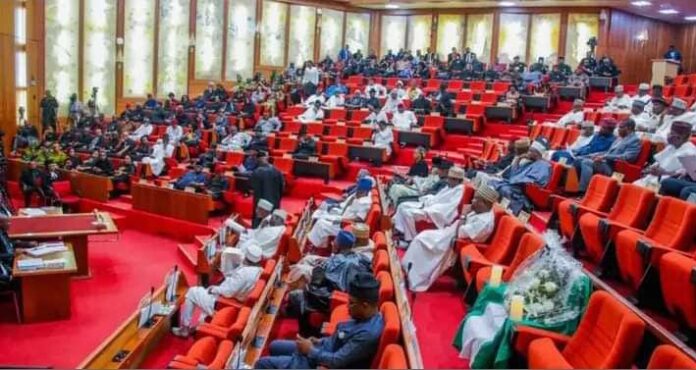The Nigerian Senate on Tuesday resolved to set up an ad hoc committee tasked with organising a national security summit, in response to the worsening insecurity plaguing various parts of the country.
The decision followed a motion presented during plenary by Senator Jimoh Ibrahim (APC, Ondo South), with support from Senators Titus Zam (APC, Benue North West), Nwebonyi Onyeka Peter (Ebonyi North), and Osita Ngwu (Enugu West).
Despite ongoing government efforts to combat violence and criminality, incidents of killings and kidnappings continue unabated across the nation. Boko Haram has intensified its operations in the North East, while bandits in the North West have escalated attacks on communities.
New extremist factions such as Lakurawa and Mahmuda have also emerged, launching assaults in states like Kebbi and Niger within the North West and North Central regions.
Senator Ibrahim, while presenting the motion, called for fresh strategies in military operations, including enhanced funding and the use of alternative, non-violent approaches.
“No country will allow its citizens to become familiar with insecurity as a way of life,” he said. “The ideology of peace for all, as embedded in the Renewed Hope Agenda, must be embraced.
To address the highlighted challenges, we must organise an evidence-based National Security Summit that can provide a comprehensive platform for in-depth dialogue and lasting solutions.”
However, the motion sparked varied responses from lawmakers.
Senator Enyinnaya Abaribe (PDP, Abia South) expressed scepticism about the effectiveness of such a summit, citing a history of unimplemented resolutions. “We have had security summits. But every one of us here knows what is going on,” he said.
Echoing this concern, Senator Adamu Aliero (Kebbi Central) argued that direct engagement with security leaders would yield better results than hosting another summit.
“I don’t believe a summit is the answer,” Aliero said. “We should summon the Inspector General of Police, the National Security Adviser, the Chiefs of Army and Defence Staff, and others to appear before us. We need face-to-face conversations, and they must make greater sacrifices for this country.”
He also recommended the incorporation of non-kinetic (non-military) strategies in dealing with national security threats, suggesting collaborative efforts from all levels of government.
In defence of the summit, Senate Minority Leader Abba Moro (PDP, Benue South) emphasised that the lack of implementation of previous recommendations shouldn’t deter fresh initiatives. “That something wasn’t done in the past doesn’t mean it shouldn’t be done now,” he stated.
Co-sponsor Senator Titus Zam also supported the move, saying the legislature must take its role seriously. “Let us do our part as a Senate and leave the rest to the executive,” he urged.
Senator Abdul Ningi (PDP, Bauchi Central) cautioned against repeating ineffective strategies.
“If we continue doing the same thing without meaningful results, we are only deceiving ourselves,” he warned, while also advocating for a meeting with security chiefs before the summit.
Following the extensive deliberation, the motion was put to a voice vote and was unanimously adopted.
Senate President Godswill Akpabio thereafter directed Senate Leader Opeyemi Bamidele (APC, Ekiti Central) to form an ad hoc committee that will oversee preparations for the summit.
“We need security experts to engage with us,” Akpabio said. “And members of the executive branch must also be involved in the summit discussions.”

